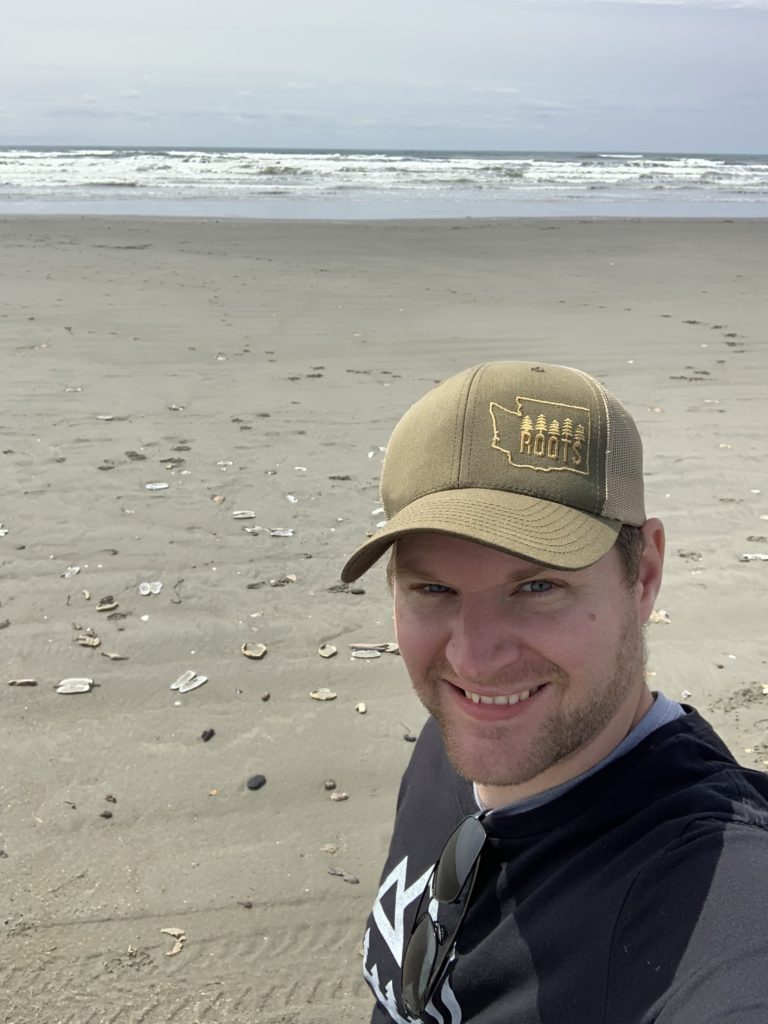TL;DR:
- Humans are merciless.
- God is merciful.
- Humans can show mercy.
- Showing mercy is important; a good place to start is with immigrants.
When I was asked to write a blog about mercy, my first thought was, Oh, no. Maybe I was a bit overeager. My work as a therapist might indicate that I have more to say on the subject than most. If I were a merciful person, that might be true. But I’m just not.
If you Google “mercy in the Bible,” a little snippet box pops up from an article titled, “What is the True Meaning of Mercy?” The author, Matthew Schmalz, states,
…to me, mercy is a love that responds to human need in an unexpected or unmerited way. At its core, mercy is forgiveness. The Bible speaks of God’s love for sinners – that is, for all of us. But the Bible also relates mercy to other qualities beyond love and forgiveness.
Schmalz discusses different Hebrew words in the Bible that translate to the English word “mercy”—synonyms for unending love, maternal connection, and steadfast loyalty. He quotes Pope Francis’s Misericordiae Vultus: “Jesus is the face of the Father’s mercy.”
God alone inhabits perfect mercy, and we should continually look to him, not to ourselves or other created beings, as the example of mercy. We humans can show mercy, but it’s not in our nature. When we show mercy, it’s the exception to the rule. When God is merciful, it’s the rule.
Merciless Us, Merciful God
In Retribution, a book about the last year of World War II, Max Hastings documents the innumerable acts of merciless savagery perpetrated against fellow humans by all the belligerent nations during just the last year of the War in the Pacific. The book is 22 chapters long. Twenty-two.

Fast forward 75 years and all you have to do is turn on the news to see the profound poverty of mercy that exists in our human world. Merciless—the current state of oppression and police brutality toward members of the BIPOC community, immigrant families locked up and separated, protestors dragged into unmarked vehicles, vicious acts against police officers, looting and destruction of property…and on…and on. And that’s just in America, one belligerent nation in a world of mercilessness.
It is clear to me that while we humans can show mercy (but so often are merciless), God is wholly merciful. Full of mercy. God does not have mercilessness. Thank God! Even Old Testament God (who is, of course, the same as New Testament God) can be counted on to be merciful.
The steadfast love of the LORD never ceases; his mercies never come to an end; they are new every morning; great is your faithfulness.
LAMENTATIONS 3:22-23 (ESV)
In our mercilessness, He remains merciful, and we can always rely on his faithfulness and never-ending mercies. There is nothing that can stop God from being merciful.
Interestingly, when God exercises judgment or justice—especially in the Old Testament, such as Noah’s flood or the destruction of Sodom and Gomorrah—there is a common theme. In the times of Noah and the cities of Sodom and Gomorrah, humans were full of mercilessness. Of the flood, Genesis 6:11 (NLT) states: “The earth was ruined in the sight of God; the earth was filled with violence.” What is more merciless than violence? In Sodom and Gomorrah, Abraham pleaded with God to spare the cities if just ten righteous men could be found amongst the wicked, merciless population; when ten could not be found, God showed mercy to Lot and his family before destroying the two cities.
As morning dawned, the angels urged Lot, saying, “Up! Take your wife and your two daughters who are here, lest you be swept away in the punishment of the city.” But he lingered. So the men seized him and his wife and his two daughters by the hand, the Lord being merciful to him, and they brought him out and set him outside the city.
GENESIS 19:15-16
I find it curious that in these accounts, humans’ lack of mercy toward each other—not unbelief or idolatry—was the catalyst for God’s judgment and perhaps wrath.
Mercy Toward Immigrants
Jesus says in Matthew 10:14-15 (ECV):
“If someone won’t welcome you or listen to your message, leave their home or town. And shake the dust from your feet at them. I promise you that the day of judgment will be easier for the towns of Sodom and Gomorrah than for that town.”
In other words, if you are not showing mercy to strangers, to travelers, it’s bad.
As I mentioned earlier, we are so often merciless to each other, but we can show mercy. We can show “a love that responds to human need in an unexpected or unmerited way,” just as our Lord has done for us. While we can’t save any soul with the mercy we show, as does our merciful God, we can help to reveal God’s merciful character through our acts of showing mercy.
I want to encourage us to consider showing mercy to one specific people group: immigrants.
Schmalz says:
According to the Bible, mercy does matter: It matters because we all need forgiveness. But mercy also matters because it is what can join us all together in spite of our differences.
Mercy matters because it is what joins us together despite our differences. Immigrants are uniquely different from native-born people. Immigrants are from different places. They have different traditions, different languages, and different beliefs. They move to our country or our city for different reasons. Some come through legal means, while others are in our communities with some form of illegality attached to their immigration status. Those immigrants who come to us illegally and are caught by Immigration and Customs Enforcement (ICE) can find themselves detained in deplorable, shameful centers that are little more than cages. ICE detention centers are not just on our southern border. Northwest Detention Center, Tacoma’s ICE processing center, is located precisely six miles south of LifeWay. The mere fact that these facilities exist is an example of our mercilessness;the documented abuses taking place at these detention centers, ranging from separating families to failing to protect detained immigrants from COVID, is merciless—not to mention the unknown, unfounded abuses that seem apparent without an official report.
Merciless.
It’s time for us to show a love that responds to human need in an unexpected, unmerited way. Your savior did it for you; let his mercifulness allow you to show mercy to these strangers, these human beings who are loved by the same merciful God who has been merciful to you.
Unexpected, Unmerited, and Personal
Mercy has to be shown. It’s a visible act. It’s not thoughts and prayers. Showing mercy requires action. That automatically makes it more difficult for us, but it should be a little hard. It’s a big deal. Big deals are hard. Jesus died on the cross to be merciful. It was so difficult he bled tears before he faced the cross. We are enabled to show mercy more easily, but it’s still a major undertaking for us. We have to get involved personally.
There are so many options for personal involvement. For example, there are agencies that help refugees and immigrants at the Northwest Detention Center, the ICE processing facility six miles south of LifeWay.
- Lutheran Community Services, Refugees Northwest, and World Relief all have refugee relocation and assistance programs that show mercy to newly arrived individuals and families.
- Preemptive Love Coalition goes into active war zones and shows mercy and unexpected, unmerited love to those whose lives have been impacted by conflict.
- You can join AIDNW, an advocacy group dedicated to supporting immigrants as they are released from Northwest Detention Center. AIDNW volunteers have been camped out in an RV at the gates of the facility since 2015, meeting a human need in an unexpected, unmerited way.
Not everyone can volunteer directly. In fact, at the start of my awakening to the refugee crisis in 2017, I applied to be a visitor at the detention center. I was turned down, not because I wasn’t qualified but, because so many others felt a tug to do something, the agency was overwhelmed with applicants. So instead, my partner Mel and I decided to donate financially to agencies whose mission is to show mercy to immigrants. The financial cost of our donations is a little hard to swallow. My mercilessness tells me to keep my hard-earned money to myself. God, in his mercifulness, meets my human need in an unexpected and unmerited way. We’ve always had enough—more than enough. Out of the abundant mercy God gives, isn’t it time for us to show mercy to the others?
If it’s overwhelming to consider volunteering or donating, there is something else we all can do. We can work to change the systems within our communities that perpetuate mercilessness. We can advocate for immigration reform, paths to citizenship, de-criminalizing immigration, or keeping families together when detained.
In the real world, this means becoming informed about the policies and departments in our own towns that apply to the treatment of immigrants. In Tacoma, my town, police officers do not check immigration status; if a person is found to be undocumented, the police do not turn the person over to ICE. Mercy shown. What are your town’s policies? What are your county’s policies? Is mercy being shown? Or is mercilessness the accepted way? Are we part of the human rule of mercilessness, or are we a part of an exception to the rule? If your town has merciless laws or policies, we can speak up. We can vote. We can advocate. We can peacefully protest. We can share our concerns with elected leaders and gently challenge our friends and families who might be out for “justice”—or worse, retribution. For mercy’s sake, it’s time for us to act and meet this human need in an unexpected and unmerited way.
It’s time to show mercy.

Bryan Foster is a Licensed Marriage and Family Therapist. He has been married to Melissa for 15 years and is dad to Patrick and Samantha. Bryan’s passion is helping individuals and couples heal from past wounds and cultivate a life full of connection. The Foster family have been members of LifeWay Church since 2016.